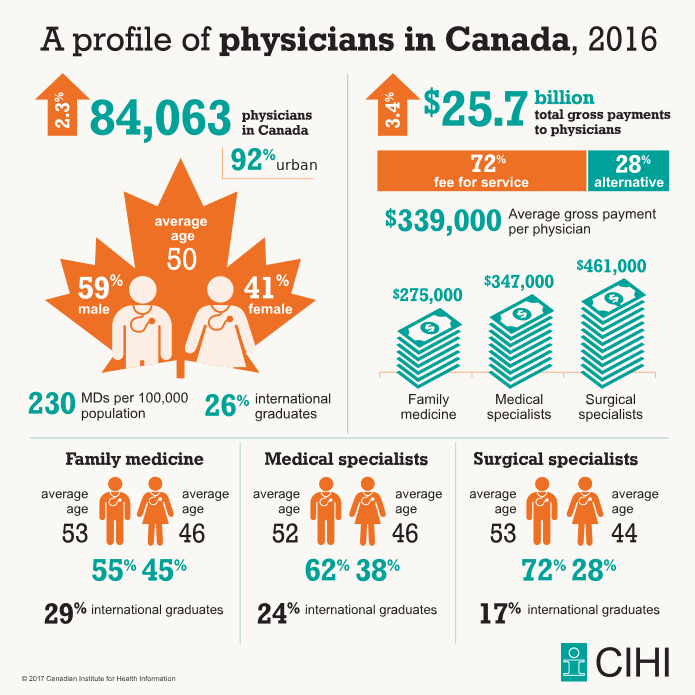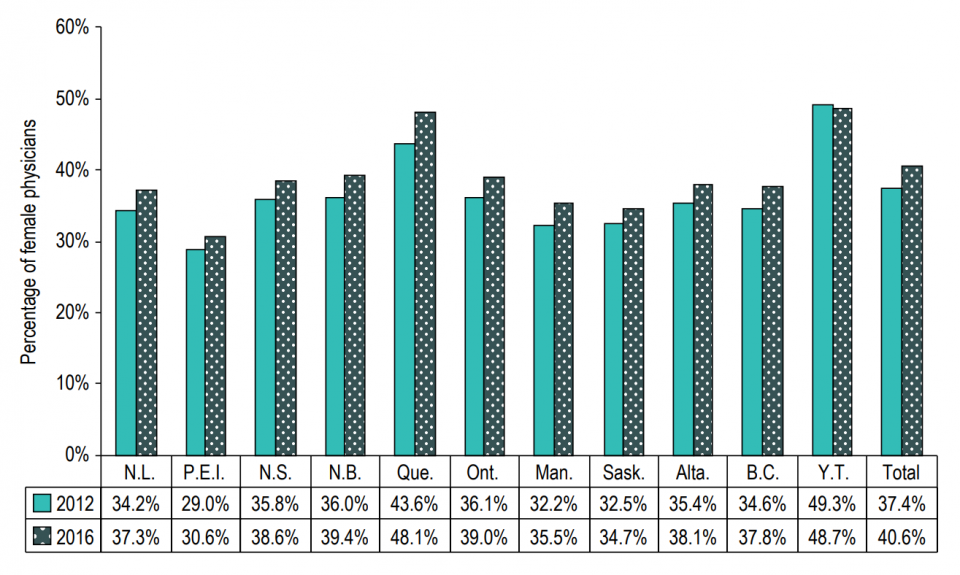Quebec has more doctors per 100,000 residents than the national average, according to a report from the Canadian Institute for Health Information (CIHI).

Despite this, Quebecers claim they are more than familiar with complaints about access to medical professionals.
READ MORE: Minister says Quebec ER doctors should work more
The numbers
The CIHI report released Thursday shows the total number of doctors in Canada at the end of 2016 was 84,063 — an increase of 2.3 per cent over the previous year.
In fact, the report shows that in the last five years, the number of doctors has climbed at a rate higher than the population increase.
Though the national average was 230 doctors per 100,000 residents, Quebec boasted 243 for the same number of people.
Only two provinces beat Quebec: Newfoundland and Labrador counting 248 and Nova Scotia had 258 per 100,000 inhabitants.

READ MORE: Nurses’ union wants money for care, not doctor salaries

Get weekly health news
What about access?
“Theoretically, we should have easier access to doctors,” Dr. Charles Bernard, president and CEO of the Collège des médecins du Québec, told The Canadian Press. “I think there’s an organisation aspect. Here at the Collège, we try to maximise teamwork to improve accessibility.”
“I think that the agreements with doctors and the organisation of work outside the Collège des médecins is an aspect that can be improved — not just the number of doctors.”
He said he also wants to see more emphasis put on family doctors to attract more candidates to the practice.
READ MORE: CAQ presents solutions for ‘broken’ Quebec health system
More female physicians
The number of female doctors in Quebec has also been steadily rising — another category where Quebec is higher than the average.
“Medical students are practically 80 per cent female. So that is going to reflect in the workforce numbers within five to ten years,” said Dr. Bernard.
In 2016, 40.6 per cent of Canadian physicians were women, compared to 37.4 per cent in 2012.
In Quebec, that number hit 48.1 per cent.
Women also represent a larger proportion of young doctors, with more than 64 per cent of Quebec doctors under the age of 40.
Degrees from abroad
About 9.7 per cent of Quebec doctors obtained their degree abroad, compared to the national average of 25.9 per cent.
Provinces like Saskatchewan, Newfoundland and Labrador, and Alberta have the highest rates at 52.5, 36.6, and 34.2 per cent, respectively.
Dr. Bernard explained that the number of francophone countries Quebec can pull doctors from is much lower than the pool of countries where English is the primary or secondary language.
He said that the Collège des médecins is working on increasing Quebec’s numbers.
“Over the last few years, we’ve greatly improved the ease of admissibility. We have clear procedures and there is no systematic obstruction in Quebec,” he said.
Click here to access the full report in PDF format.
— With files from The Canadian Press








Comments